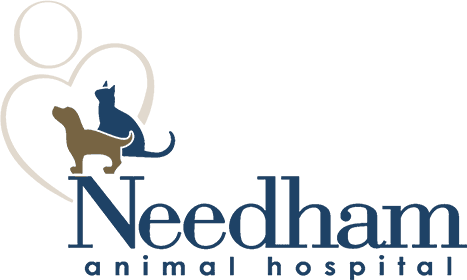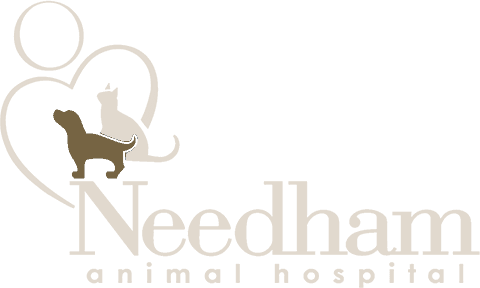
Anesthesia: What You Need to Know
How to Prepare for Your Pet’s Care Pre & Post Surgery
- Do not feed your pet after 8:00 pm the evening before your pet’s anesthetic procedure.
- Your pet should have water available throughout the night before surgery, but please take their water away first thing in the morning.
- If your pet is on any medications, please contact us prior to the day of your pet’s procedure to get specific instructions regarding these medications.
Pre-Surgical Screening
To decrease the risk of unexpected complications, which may be related to anesthesia and/or surgery, our doctors recommend the following:
- EKG screening- measures electrical activity and rhythm of the heart.
- Urine specific gravity- measures the ability of the kidneys to concentrate urine.
- Pre-anesthetic lab work- a blood test to check enzyme levels in internal organs, which gives information about the ability of the body to tolerate anesthesia.
- BUN and Creatinine – evaluates kidney function.
- ALT and ALP – evaluate liver function.
- Total protein and Packed Cell Volume (PCV) - determines state of hydration and checks for anemia.
- Glucose - measures blood sugar.
The pre-surgical screening (EKG, urine specific gravity, and pre-anesthetic lab work) can be done the day your pet is admitted for surgery or, if you prefer, you may schedule an appointment to have the screenings done up to two weeks before your pet’s surgery. Pre-surgical screening is recommended for all patients undergoing general anesthesia but is only required in animals over the age of 7 years.
Surgical Monitoring & Precautionary Measures
Patient safety while under general anesthesia is of the utmost importance and is our top priority. To keep your pet safe, we ensure that each patient receives the following:
- A dedicated surgical assistant to monitor the patient's vital signs throughout the procedure and recovery.
- Intravenous (IV) Catheter- gives the doctor direct access to a vein so that injectable medications can be administered quickly and efficiently.
- IV fluids- maintain blood pressure, flush the kidneys, and maintain hydration.
- Pulse oximeter monitor- monitors heart rate and oxygen concentration of blood.
- EKG- measures electrical activity and rhythm of the heart throughout the procedure.
- Blood pressure monitor- ensures that each patient’s blood pressure remains safe. If blood pressure fluctuates during the procedure, we can make modifications to keep it regulated.
- Patient warming- anesthesia can cause a patient’s body temperature to drop. We use a combination of warm water and hot air blankets to help keep patients thermo-regulated.
- If appropriate, an antibiotic injection- helps prevent possible infection.
- If appropriate, post-surgical laser treatment of surgical incision- promotes faster healing and reduces pain and inflammation.
If you have any questions regarding the pre-surgical screenings, pre-surgical guidelines or the surgery estimate, please call our office. As always, we will happily answer any questions you may have.
Call us at (910) 597-2491 for additional information.
Estimate of Surgical Fees
You will be given an estimate of the cost for surgery/procedure. Please remember that our fees may need to be adjusted in cases of advanced age, obesity, pregnancy, estrus, or other unforeseen situations. Surgical fees are based on the surgeon’s time. Any factors increasing the complexity of the surgery usually increase the time necessary to perform the surgery. Payment of the estimated charges is due at the time of drop off and any final balance owed will be due at discharge. We will do our best to provide an accurate range of potential fees in your provided estimate.
Admittance Requirements
For your pets’ protection, he/she will need to be up to date on all their vaccinations. Dogs need a current Distemper, Parvo, Bordetella, and Rabies vaccination. Cats will need a current Distemper and Rabies vaccination. Both dogs and cats must have had a negative fecal examination within the past year.


What to Expect on the Day of Surgery
Arrive at the hospital at your scheduled admittance appointment time (usually between 7:30 am- 8:30 am) on the day of surgery. Please allow 15-20 minutes to speak with the doctor and surgical nurse and sign the appropriate paperwork. Payment of estimated charges is always required before admitting your pet for a surgical or anesthetic procedure. Arriving late or early for your admission appointment may result in a delay.
Please plan on your pet being with us most of the day. It is typical for surgical cases to be discharged between 4 pm and 6 pm. Some types of procedures require overnight hospitalization. We typically have multiple surgical procedures in a day, and the veterinarian will decide how they perform the procedures based on pre-operative exams and the specifics of each pet’s condition on the day of surgery. In most cases, you will be contacted at the beginning of your pet’s procedure and again once the procedure is completed. You will be given an exact discharge time once your pet is awake from anesthesia. Although you will admit your pet in the morning, your pet’s procedure may not start until later in the day.
Post Surgical Care
In most cases, your pet will receive an injection for pain relief to make him/her more comfortable. We also typically send you home with pain medication to use following surgery. There may be specific instructions for your pet after surgery; these will be discussed at discharge.
The veterinarian and our staff will check your pet routinely during the hospital stay and again just before discharge. Before taking your pet home, we will meet with you and give you post-surgical discharge instructions. If it is not convenient to speak with us when picking up your pet, please let us know so we can plan to speak with you and send home written discharge instructions.
-
Tried and Trusted in Wilmington
-
Superior Patient and Parent Care
-
Professional and Personable Staff
-
Progressive Services For Your Pets

How Can We Help You?
-
Get StartedContact our clinic today!Book An Appointment
-
Get to Know UsLearn about our clinic's history.About Us
-
Come Prepared Online Forms
-
Our Happy PatientsWe let our customers do the talking for us.Our Reviews
Frequently Asked Questions
Why can’t my pet eat prior to their procedure?
Your pet’s stomach needs to be empty before anesthesia. That’s because anesthetic drugs can cause vomiting in some pets, and that can lead to aspiration pneumonia. When your pet is under anesthesia, the brain keeps the heart beating and lungs breathing, but many other body functions relax. That includes the larynx, which prevents things that should head to the GI tract from going “down the wrong pipe” and into the lungs. If a pet vomits during anesthesia, the vomit may go down the trachea and into the lungs instead of down the esophagus to the stomach. When something gets in the lungs that shouldn’t be there (aspiration), this can cause pneumonia.
Why does my pet need to be admitted in the morning if their procedure isn’t until later in the day?
There are several reasons that we admit all our surgical patients in the morning vs. admitting at staggered times throughout the day.
Pre-operative exams and lab work are done on the morning of surgery. The condition of each patient and the results of their lab work may play a part in our decision to perform one procedure prior to another.
Due to unforeseen variables, we often can’t predict how long each procedure will take. For example, some dentistry procedures can take significantly longer than anticipated if we discover dental complications once the pet is anesthetized. Variables such as these could lead to changing admission times and potentially long waits for pet owners.
Once all our patients are admitted in the morning, our surgical team actively monitors and cares for them as they undergo their procedures. If we allowed for mid-day admissions, the veterinarian and their team would not be readily available to the pet parent at admission. Please rest assured that our surgical patients are watched closely throughout the day and kept as comfortable as possible while they wait for their procedure to start.
Why can’t you give me an exact price quote for my pet’s procedure (particularly for dental procedures)?
With dentistry, we typically cannot perform a full diagnostic oral exam and radiographs until the patient is under anesthesia. Once we have this information, we have a much clearer picture of what each patient needs. Additionally, since each mouth is different, we cannot predict how long extractions will take if needed. We do our best to give an accurate price range for all procedures.
It is important for you to understand that there is always a risk of anesthetic and surgical complications anytime these procedures are performed. We strive to take the highest quality care of your pet and take all the added precautions you allow to avoid potential problems. Thank you for entrusting your pet to us.
If you have any questions, please do not hesitate to call us at (910) 597-2491. We are here to make you and your pet comfortable with the procedure.


